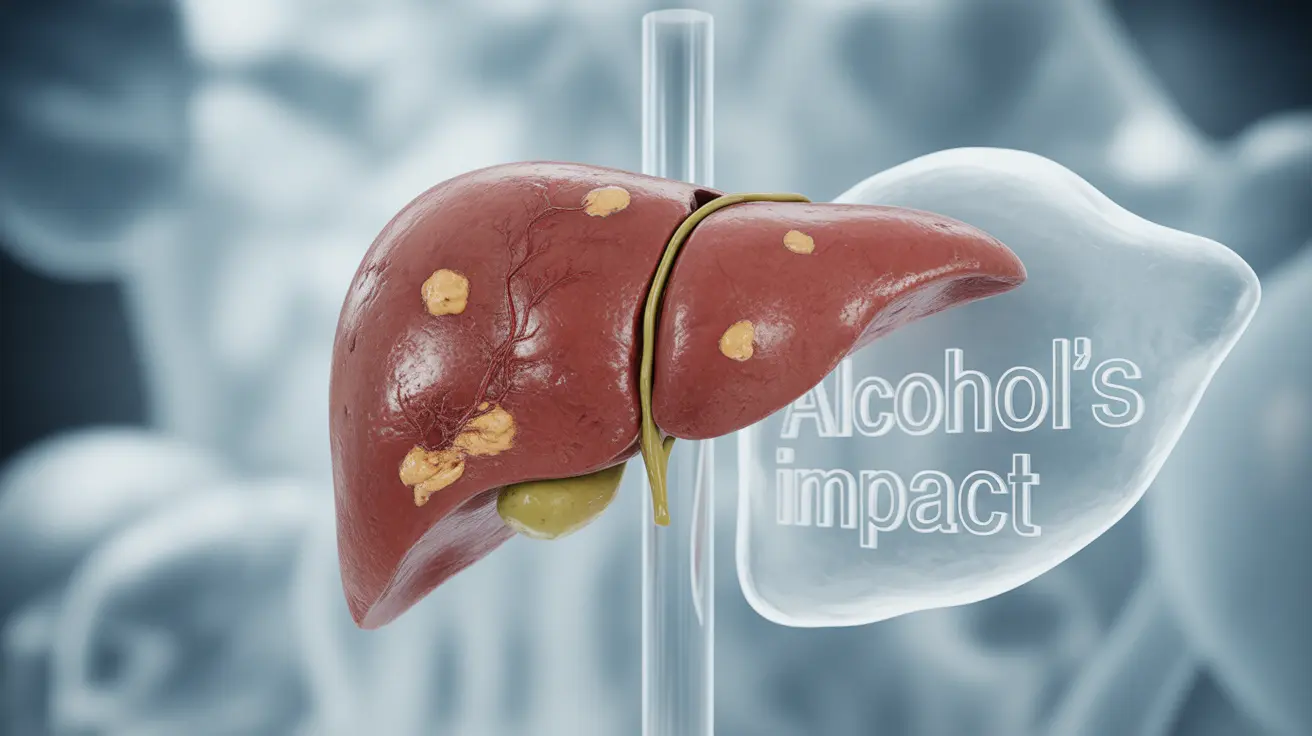Your liver plays a crucial role in maintaining overall health, but excessive alcohol consumption can seriously compromise its function. Recognizing the early signs that your liver is struggling can be vital for preventing long-term damage and maintaining your well-being. Understanding these warning signals allows you to take action before serious complications develop.
This comprehensive guide explores the key indicators of alcohol-related liver stress and helps you identify when it's time to seek medical attention. By learning to recognize these signs early, you can take proactive steps to protect your liver health.
Common Early Signs of Liver Stress
When your liver begins to show signs of alcohol-related stress, several symptoms may become apparent:
Fatigue and General Malaise
One of the earliest indicators that your liver is struggling is persistent fatigue that doesn't improve with rest. This occurs because your liver has difficulty processing toxins and maintaining energy levels when damaged by alcohol.
Digestive Changes
Changes in your digestive system often signal liver stress, including:
- Loss of appetite
- Nausea after meals
- Unexpected weight changes
- Bloating and gas
- Changes in bowel movements
Physical Discomfort
Physical symptoms that may indicate liver stress include:
- Right-sided abdominal pain or tenderness
- Swelling in the upper abdomen
- Unexplained muscle aches
- Joint pain
Advanced Warning Signs
Visible Physical Changes
As liver damage progresses, more noticeable symptoms may develop:
- Yellowing of the skin or eyes (jaundice)
- Spider-like blood vessels on the skin
- Redness in the palms of hands
- Swelling in the legs and ankles
Mental and Emotional Changes
Liver stress can affect brain function, leading to:
- Difficulty concentrating
- Changes in sleep patterns
- Mood swings
- Mental confusion
When to Seek Medical Help
Certain symptoms require immediate medical attention:
- Severe abdominal pain
- Dark-colored urine
- Pale or tar-colored stools
- Fever with other liver-related symptoms
- Confusion or extreme drowsiness
- Vomiting blood
Understanding Alcohol's Impact on Liver Health
Alcohol affects your liver through multiple mechanisms:
- Inflammation of liver tissue
- Accumulation of fatty deposits
- Scarring of liver tissue
- Disruption of normal liver function
- Interference with toxin removal
Prevention and Recovery Steps
To protect your liver health:
- Limit or avoid alcohol consumption
- Stay hydrated with water
- Maintain a balanced diet
- Exercise regularly
- Get adequate sleep
- Avoid mixing alcohol with medications
Frequently Asked Questions
What are the early signs that my liver is struggling due to alcohol consumption?
Early signs include unexplained fatigue, loss of appetite, nausea, right-sided abdominal discomfort, and digestive changes. You might also notice bloating, weight changes, and general malaise.
How can I tell if fatigue and abdominal discomfort are related to liver damage?
Liver-related fatigue typically persists despite rest and is often accompanied by right-sided abdominal pain or tenderness. If these symptoms occur alongside a history of regular alcohol consumption, they may indicate liver stress.
What symptoms should prompt me to see a doctor about possible alcohol-related liver disease?
Seek immediate medical attention if you experience yellowing of the skin or eyes, severe abdominal pain, dark urine, pale stools, persistent fatigue, unexplained weight loss, or mental confusion.
Can unexplained weight loss and loss of appetite be signs of alcohol-induced liver problems?
Yes, unexplained weight loss and decreased appetite are common signs of liver damage. These symptoms occur because liver dysfunction affects your body's ability to process nutrients and regulate metabolism.
How does alcohol cause liver damage and what happens if it is left untreated?
Alcohol damages liver cells through inflammation and oxidative stress, leading to fatty liver disease, alcoholic hepatitis, and potentially cirrhosis if left untreated. Without intervention, chronic liver damage can lead to liver failure, which can be life-threatening.




